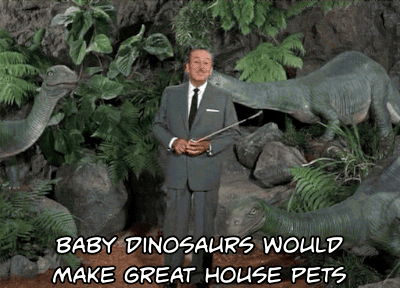So I was happy to hear that Brittany Gitzlaff, youth services director at Waunakee Public Library in WI, agreed to my featuring a recent email conversation of ours! Here's her question:
"After the success of my first few 4K field trips, due in large part to yours and your coworker Brooke's blogs, I was wondering if you had any advice or tricks on writing field trips and tours... Basically, I just don't want them to come in and think that I or the library are completely boring. :)"
Okay, so the actual email I wrote was excessively rambling and thankfully Brittany was able to get something out of that. I'm gonna try to be more succinct and specific here, having actually synthesized my thoughts instead of blurting them out and pressing "send".
First off, I've been thinking a lot about advocacy lately, due in no small part to serving on an ALA committee whose chair is Jenna Louise-Nemec, advocacy extraordinaire. And I realized, as I was thinking about the tips I emailed Brittany, that field trips are an advocacy tool. Think about it: what is the most desirable outcome of providing field trips to local groups? To recruit more families as regular patrons at the library. To strengthen ties with tax payers and future tax payers. And we're hoping to do that through the children, quite possibly the least likely family members to have control over the family schedule. Regardless, children do have persuasive powers for negotiating with their parents, and parents see this "nagging" or "pestering" as actually a positive exercise in socialization.
So if our most desirable outcome is to recruit more families as regular patrons at the library, our more immediate goal is to get the children we see to ask their parents to return to the library. And how can we do that? By turning kids into library advocates. And we can do that by showing kids that the library is a fun and necessary part of their lives, and to give them a sense of ownership of the library.
So what does this look like when writing a field trip script from scratch?
At every developmental level, you can ask yourself a few questions:
1. Why should this age group care that the library exists? (the answer is your introduction)
2. Why should this age group care about [part of the library you're showing them on a tour]? (the answer is literally what you will say to them on the tour)
At each age-group level, remember that it's important to find some way to attach each part of the library to their schema (their brain map that helps them remember stuff). If their can't somehow link it to something they already know and is relevant to them, they'll likely forget what you said.
If you'd like, it'd be awesome if people would want to try this out in the comments:
--What parts of your collection would you show kindergartners? How about fourth graders? Are these parts different? Why or why not?
--How would you describe the nonfiction section to kindergartners, second graders, and middle schoolers? (bonus points if this doesn't include the phrase, "These are books of facts." Because that's not actually the case, right? Chances are your library, like ours, houses books like Dinosaurology in nonfiction. Dinosaurology is a book about an island discovered in 1907 with actual dinosaurs on it. But I wouldn't not put it in nonfiction, because I truly believe that's where it goes. So what is nonfiction actually about?)
As librarians, we can get very used to offering new things we think up and expecting our regular patrons to go, "cool! Okay!"... So it may be difficult at first to think about why a patron who does not use the library would care what's happening there. But answers to these questions exist, I promise. It's the whole reason we do what we do, and reasoning behind that may be subconscious and instantaneous. But when reaching non-regular patrons and non-patrons, it's important to dig into your psyche and deliberately delineate why your library RULES.
Your library is not boring.
You are not boring.
I promise.
So what makes you interesting?
That's your tour.
So if our most desirable outcome is to recruit more families as regular patrons at the library, our more immediate goal is to get the children we see to ask their parents to return to the library. And how can we do that? By turning kids into library advocates. And we can do that by showing kids that the library is a fun and necessary part of their lives, and to give them a sense of ownership of the library.
So what does this look like when writing a field trip script from scratch?
At every developmental level, you can ask yourself a few questions:
1. Why should this age group care that the library exists? (the answer is your introduction)
2. Why should this age group care about [part of the library you're showing them on a tour]? (the answer is literally what you will say to them on the tour)
At each age-group level, remember that it's important to find some way to attach each part of the library to their schema (their brain map that helps them remember stuff). If their can't somehow link it to something they already know and is relevant to them, they'll likely forget what you said.
If you'd like, it'd be awesome if people would want to try this out in the comments:
--What parts of your collection would you show kindergartners? How about fourth graders? Are these parts different? Why or why not?
--How would you describe the nonfiction section to kindergartners, second graders, and middle schoolers? (bonus points if this doesn't include the phrase, "These are books of facts." Because that's not actually the case, right? Chances are your library, like ours, houses books like Dinosaurology in nonfiction. Dinosaurology is a book about an island discovered in 1907 with actual dinosaurs on it. But I wouldn't not put it in nonfiction, because I truly believe that's where it goes. So what is nonfiction actually about?)
As librarians, we can get very used to offering new things we think up and expecting our regular patrons to go, "cool! Okay!"... So it may be difficult at first to think about why a patron who does not use the library would care what's happening there. But answers to these questions exist, I promise. It's the whole reason we do what we do, and reasoning behind that may be subconscious and instantaneous. But when reaching non-regular patrons and non-patrons, it's important to dig into your psyche and deliberately delineate why your library RULES.
Your library is not boring.
You are not boring.
I promise.
So what makes you interesting?
That's your tour.




No comments:
Post a Comment